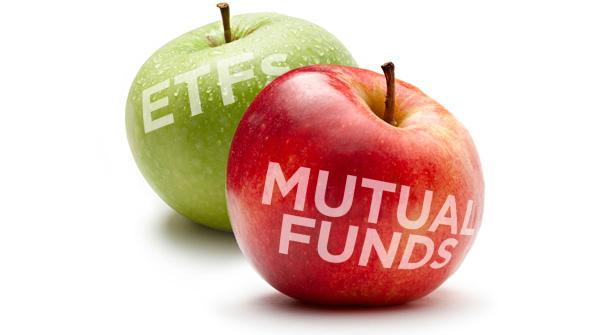Understanding the Difference Between Mutual Funds and ETFs
In contemporary complex economic landscape, traders have a mess of alternatives to select from on the subject of growing their wealth. Two famous funding cars that often locate themselves inside the highlight are Mutual Funds and Exchange-Traded Funds (ETFs). But what units them apart, and the way do you decide which one is right for you? In this complete guide, we are able to explore the important thing variations between Mutual Funds and ETFs, supporting you are making knowledgeable funding selections.
Mutual Funds: An In-Depth Analysis
What Are Mutual Funds?
Mutual Funds are collective investment schemes that pool cash from various investors and use that capital to put money into a different portfolio of shares, bonds, or different securities. These budget are controlled with the aid of professional fund managers who make investment decisions on behalf of the traders.
Pros of Mutual Funds
Diversification: Mutual Funds provide diversification, spreading investments across numerous property, lowering threat.
Professional Management: Expert fund managers make funding choices, cashing in on their information.
Liquidity: Mutual Funds are typically open for every day buying and selling, presenting liquidity to traders.
Cons of Mutual Funds
Fees: Management fees and fee ratios can consume into your returns.
Limited Trading: Prices are set at the cease of the trading day, proscribing intraday buying and selling possibilities.
Tax Inefficiency: Mutual Funds may be tax-inefficient due to capital profits distributions.
When to Choose Mutual Funds?
Mutual Funds are best for investors who pick a arms-off technique, searching for expert management and diversification.
ETFs: A Deep Dive
What Are ETFs?
Exchange-Traded Funds (ETFs) are similar to Mutual Funds in that they keep a varied portfolio of assets. However, they may be traded on inventory exchanges, just like individual shares, at some point of the trading day.
Pros of ETFs
Intraday Trading : ETFs may be bought and bought during the buying and selling day, supplying flexibility.
Transparency : ETFs offer actual-time pricing and holdings statistics.
Tax Efficiency: ETFs are normally tax-green because of their unique structure.
Cons of ETFs
Brokerage Commissions: Frequent trading of ETFs can lead to better brokerage fees.
Self-Directed Management: Investors need to make their very own funding decisions.
Premiums and Discounts: ETFs can every now and then exchange at rates or discounts to their Net Asset Value (NAV).
When to Choose ETFs?
ETFs are suitable for investors who're actively involved in coping with their portfolios, seek intraday trading possibilities, and prefer transparency in their investments.
Key Differences: Mutual Funds vs. ETFs
Structure
Mutual Funds: They are open-end budget, meaning they invent and redeem shares primarily based on investor call for.
ETFs: They are closed-give up budget, with a set variety of stocks, traded on exchanges.
Trading
Mutual Funds: Traded on the stop of the trading day at the Net Asset Value (NAV) fee.
ETFs: Traded throughout the day, with prices fluctuating based totally on deliver and demand.
Costs
Mutual Funds:
Typically have control charges, income masses, and price ratios.
ETFs: Generally have decrease rate ratios and can have brokerage commissions.
Tax Efficiency
Mutual Funds: May generate capital profits tax because of redemptions via other buyers.
ETFs: Tend to be tax-green as traders manage after they realize capital gains.
Transparency
Mutual Funds: Provide holdings statistics periodically, usually quarterly.
ETFs: Offer real-time transparency into their holdings.
Frequently Asked Questions
Can I switch between Mutual Funds and ETFs?
Yes, buyers can switch between Mutual Funds and ETFs relying on their converting investment preferences and dreams.
Are Mutual Funds safer than ETFs?
Neither is inherently more secure than the alternative. Safety relies upon on the particular investments held inside each fund.
What factors must I consider whilst selecting between Mutual Funds and ETFs?
Consider your investment goals, trading frequency, and preference for expert management while creating a desire.
Do ETFs pay dividends like Mutual Funds?
Yes, many ETFs pay dividends, much like Mutual Funds, primarily based on the profits generated via their underlying holdings.
How do I purchase Mutual Funds and ETFs?
You can buy each Mutual Funds and ETFs through brokerage accounts, monetary advisors, or without delay from fund businesses.
Are there Mutual Funds and ETFs that tune the same indices?
Yes, there are times where Mutual Funds and ETFs track the equal underlying indices, permitting buyers to pick out their preferred investment car.
Conclusion
In the arena of investing, know-how the distinctions between Mutual Funds and ETFs is critical for making knowledgeable choices. Each has its particular advantages and drawbacks, making them suitable for exceptional forms of buyers and funding techniques. Whether you opt for the arms-on method of ETFs or the expert management of Mutual Funds, your desire need to align with your monetary goals and hazard tolerance.
So, the subsequent time you ponder your funding approach, keep in mind the variations between Mutual Funds and ETFs, and choose the one that fine suits your financial adventure.

Post a Comment